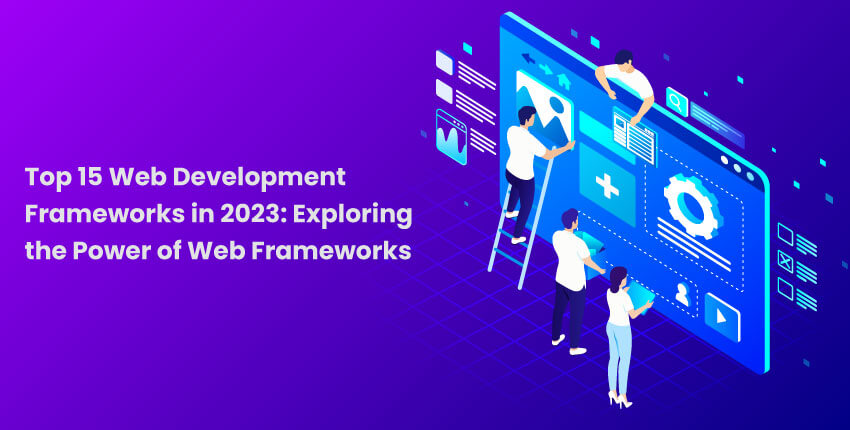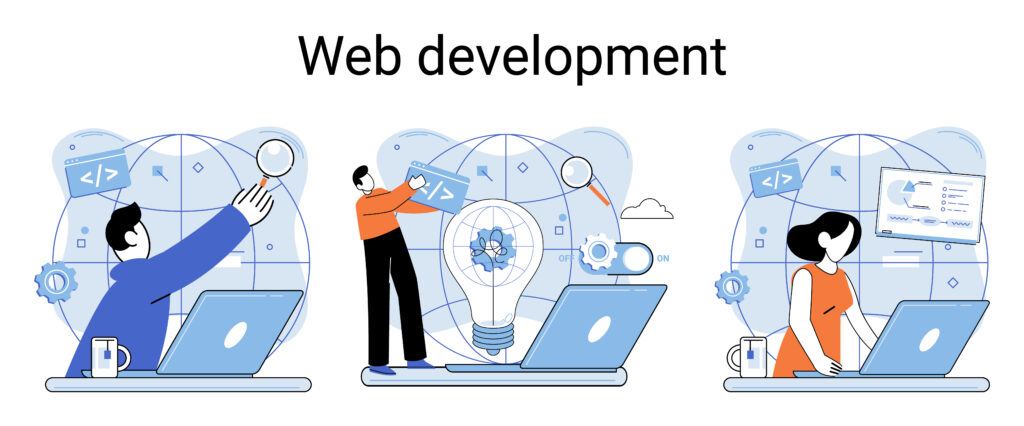Introduction:
Discover the latest advancements in web development as we highlight the top 15 sought-after frameworks in 2023. These indispensable tools have gained immense popularity among developers worldwide, empowering them to create efficient and robust web applications. In this blog, we’ll explore the advantages of using frameworks, discuss different framework architectures, and offer valuable insights into building a successful career in web development.
What Is a Web Framework?
A web framework is a pre-designed set of tools, libraries, and utilities meticulously crafted to facilitate the efficient creation of web applications. These frameworks provide a structured approach, promoting code reusability and maintainability, saving developers from repetitive tasks. Emphasizing best practices, security, and optimized performance, web frameworks have become a vital part of the development process.
Types of Web Frameworks – Frontend and Backend:
Web frameworks can be broadly categorized into two types: frontend and backend.
Frontend Web Frameworks:
Discover the powerhouses behind seamless user experiences! Frontend frameworks specialize in rendering content, managing user interactions, and ensuring interactive browsing. Among the most popular are:
- React: Developed and maintained by Facebook, React’s component-based architecture and virtual DOM enable developers to create dynamic and interactive UIs with ease.
- Angular: Google’s full-featured frontend framework equips developers with powerful tools for building complex single-page applications (SPAs).
- Vue.js: As a progressive JavaScript framework, Vue.js offers incremental adoption, making it easily integrable into existing projects and scalable as needed.
Backend Web Frameworks:
Dive into server-side logic and operations with the following popular backend frameworks:
- Django: Built on Python, Django follows the “batteries included” philosophy, offering an array of built-in features and libraries for rapid development.
- Ruby on Rails: Simplicity meets functionality in this Ruby-based framework, known for its convention over configuration principle and promotion of RESTful architecture.
- Express.js: A minimalistic and flexible Node.js-based framework that empowers developers to create scalable and lightweight web applications.
Simplified App Development with Web Development Frameworks
Accelerated Development:
Experience a significant boost in development speed by leveraging web development frameworks. These frameworks offer pre-built modules, components, and templates, streamlining repetitive tasks and allowing developers to focus on creating unique features. As a result, projects are completed faster and with greater efficiency.
Enhanced Performance:
Web development frameworks are crafted to optimize performance through best practices and efficient code structures. Leveraging caching, compression, and other performance-enhancing techniques, these frameworks ensure web applications load quickly and provide seamless user experiences. The architecture and built-in optimization features contribute to overall performance and responsiveness.
Error Reduction:
In the realm of large-scale applications, writing error-free code can be challenging. Web development frameworks come to the rescue by promoting standardized coding practices and providing built-in error handling mechanisms. Adhering to these guidelines helps developers avoid common pitfalls and ensures a more robust and stable application.
Reliability and Security:
Web development frameworks include built-in security features, making it easier for developers to implement robust security measures. Rigorously tested and frequently updated, these trusted frameworks address potential vulnerabilities, enhancing application reliability and mitigating security risks.
What are Web Frameworks Used For?
Web frameworks play a pivotal role in web application development, equipping developers with a comprehensive set of tools and structures that streamline the entire process. These frameworks find diverse applications, including:
Routing and URL Handling: Simplifying URL handling and efficiently routing user requests to the appropriate pages or controllers.
Database Integration: Seamlessly integrating with databases, enabling effortless database operations.
Templating: Empowering developers to create dynamic and data-driven web pages through efficient templating engines.
Session Management: Facilitating the storage and retrieval of user data across multiple requests with robust session management capabilities.
Authentication and Authorization: Ensuring secure user access control with built-in features for authentication and authorization.
Types of Web Development Frameworks:
- Front-end Frameworks: Focused on enhancing user interfaces and experiences, these frameworks encompass renowned libraries like React, Angular, and Vue.js, simplifying the creation of interactive front-end components.
- Back-end Frameworks: Concentrating on server-side development, these frameworks handle essential tasks such as data storage, business logic, and security. Notable examples include Django (Python), Ruby on Rails (Ruby), and Express.js (Node.js).
- Full-Stack Frameworks: Full-stack frameworks combine both front-end and back-end capabilities, offering an all-in-one solution for building web applications. They provide a seamless development experience and include frameworks like Meteor and Laravel.
Top 15 Best Frameworks for Web Development:
- React:

React, a widely adopted JavaScript library for crafting user interfaces was created by Facebook. Enabling developers to craft reusable UI components and effectively manage the application state, this framework emerges as the premier option for constructing dynamic and interactive web applications.
Benefits:
- Component-Based Architecture: React’s component-based architecture allows developers to create reusable UI components, leading to improved code organisation and easier maintenance.
- Virtual DOM: React’s virtual DOM efficiently updates only the changed parts of the actual DOM, reducing rendering time and enhancing performance.
- Large Community and Ecosystem: React has a vast community and a rich ecosystem of libraries and tools, providing extensive support and resources for developers.
- Ember JS:
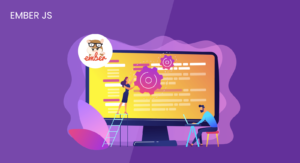
Ember JS is an open-source framework that follows the “convention over configuration” principle. It offers a set of robust tools and conventions to streamline web application development, making it an ideal framework for complex projects.
Benefits:
- Convention over Configuration: Ember follows the convention over configuration principle, which minimizes the need for boilerplate code and simplifies development.
- Robust Router: Ember provides a powerful router, making it easy to handle complex application URLs and route transitions efficiently.
- Ember CLI: The Ember Command Line Interface (CLI) simplifies project setup, development, and testing processes.
- Angular:

Developed by Google, Angular is a powerful front-end framework that provides a comprehensive set of features for building dynamic single-page applications. It employs TypeScript for enhanced scalability and maintainability.
Benefits:
- Angular provides a robust two-way data binding capability, enabling effortless synchronization between the model and view. This effectively minimizes the necessity for manual DOM manipulation.
- Dependency Injection: Angular’s dependency injection system helps manage component dependencies, promoting code modularity and testability.
- Comprehensive Framework: Angular comes with a wide range of features, such as forms handling, HTTP client, and routing, making it a complete solution for building complex applications.
- jQuery:

One of the most popular JavaScript libraries, jQuery simplifies HTML document traversal, event handling, and animation, making it an excellent choice for developers looking to enhance the client-side scripting of web applications.
Benefits:
- Simplified DOM Manipulation: jQuery simplifies DOM manipulation, event handling, and animation, reducing the amount of code required to achieve specific effects.
- Cross-Browser Compatibility: jQuery handles browser inconsistencies, ensuring that web applications work consistently across different browsers.
- Rich Plugin Library: jQuery has a vast collection of plugins that extend its functionality, allowing developers to add various features to their applications easily.
- Ruby on Rails:

Ruby on Rails, commonly referred to as Rails, represents a comprehensive web development framework that operates with the Ruby programming language. It follows the “Convention over Configuration” paradigm, emphasizing simplicity and productivity.
Benefits:
- Rapid Development: Ruby on Rails emphasizes convention over configuration, enabling developers to build applications quickly and efficiently.
- Active Record: Rails’ Active Record simplifies database management, making it easy to interact with the database through Ruby objects.
- Rich Set of Libraries: Rails comes with a broad set of libraries and tools that streamline development, reducing the need for external dependencies.
- Django:

Django stands out as a top-tier Python web framework celebrated for its dedication to a clean and pragmatic design approach. It encourages rapid development and follows the “Don’t Repeat Yourself” (DRY) principle.
Benefits:
- Admin Interface: Django’s built-in admin interface allows developers to manage application data and user authentication without writing additional code.
- Object-Relational Mapping (ORM): Django’s ORM provides a high-level abstraction for database management, making database interactions more intuitive and less error-prone.
- Versatility: Django’s versatility extends across a broad spectrum of applications, accommodating everything from straightforward websites to intricate web-based systems.
- Angular or Angular JS:
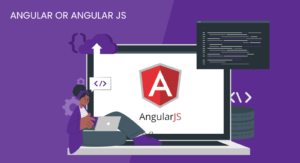
AngularJS, the predecessor of Angular, is an open-source JavaScript framework maintained by Google. It facilitates the development of dynamic, single-page applications with its powerful features.
Benefits:
- Powerful Directives: Angular’s directives allow developers to create reusable custom HTML elements, improving code modularity and readability.
- Testability: Angular is designed with testability in mind, making it easier to write unit tests for components and services.
- Extensive CLI: Angular CLI simplifies project setup and provides useful commands for building, testing, and deploying applications.
- ASP.NET:
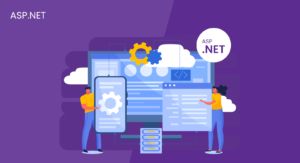
Developed by Microsoft, ASP.NET is a popular framework for building robust web applications. It supports multiple languages and provides extensive tools for creating scalable and secure applications.
Benefits:
- Cross-Platform Compatibility: ASP.NET Core allows developers to build applications that run on Windows, Linux, and macOS.
- High Performance: ASP.NET Core has been finely tuned to deliver exceptional performance, rendering it highly appropriate for constructing extensive and heavily frequented applications.
- Integrated Security: ASP.NET Core comes equipped with intrinsic security features designed to safeguard web applications against prevalent vulnerabilities.
- Laravel:
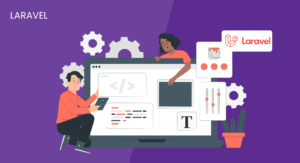
Laravel is a PHP web development framework known for its elegant syntax and expressive code. It simplifies common tasks like routing, caching, and authentication, enhancing the developer’s productivity.
Benefits:
- Elegant Syntax: Laravel’s expressive syntax makes code writing more enjoyable and intuitive for developers.
- Eloquent ORM: Laravel’s Eloquent ORM allows developers to interact with the database using expressive and easy-to-understand syntax.
- Blade Templating Engine: Blade simplifies template creation and allows developers to build reusable template layouts.
- Express:

Express is a minimalist and flexible Node.js framework that simplifies the process of building web applications and APIs. It provides a vast range of HTTP utilities and middleware to expedite development.
Benefits:
- Minimalist and Flexible: Express is a lightweight framework that allows developers to build applications with minimal overhead and greater flexibility.
- Middleware Support: Express facilitates the use of middleware, enabling developers to incorporate additional functionality into the application’s request-response cycle.
- Ideal for APIs: Express is commonly used to build APIs and backend services due to its simplicity and speed.
- Meteor:

Meteor is a full-stack JavaScript framework that allows developers to build real-time web applications effortlessly. It combines client and server code, making the development process seamless.
Benefits:
- Full-Stack JavaScript: Meteor allows developers to use JavaScript both on the client and server sides, providing a seamless development experience.
- Real-Time Data: Meteor’s real-time data synchronization feature automatically updates data between the server and clients, making it ideal for collaborative applications.
- Auto-Scaling: Meteor automatically scales applications based on the number of connected clients, ensuring optimal performance during spikes in traffic.
- Spring:

Spring is an enterprise-level Java framework that facilitates the development of scalable and high-performance web applications. It offers a comprehensive ecosystem and follows the “Dependency Injection” principle.
Benefits:
- Robust Ecosystem: Spring provides a comprehensive ecosystem with modules for different functionalities like security, data access, and web development.
- Dependency Injection: Spring’s dependency injection feature promotes loose coupling between components, improving code maintainability and testability.
- Enterprise-Level Support: Spring is widely used for building enterprise-level applications and is backed by a strong community and commercial support.
- Backbone JS:
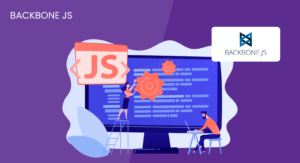
Backbone.js is a lightweight JavaScript library that provides the structure needed to build web applications. It acts as the backbone of your application, allowing you to create models, views, collections, and more.
Benefits:
- Lightweight: Backbone.js is a lightweight framework that provides just the essentials for building web applications, making it suitable for smaller projects.
- Backbone Models and Collections: Backbone’s Models and Collections allow developers to manage and manipulate data in an organized manner.
- Easy Integration: Backbone can be easily integrated into existing projects without disrupting the overall architecture.
- PLAY:

PLAY is a high-velocity web framework for Java and Scala that emphasizes developer productivity. It offers a simple and intuitive API, making it an excellent choice for agile development.
Benefits:
- Productivity: PLAY’s simple and intuitive API allows developers to be more productive, resulting in faster development cycles.
- Java and Scala Support: PLAY supports both Java and Scala languages, providing flexibility to developers with different language preferences.
- Built-in Testing Framework: PLAY comes with a built-in testing framework, making it easier to write and execute unit and integration tests.
- Vue JS:

Vue.js is a progressive JavaScript framework that is easy to integrate into other projects. Its simplicity and flexibility make it a popular choice among developers for building interactive user interfaces.
Benefits:
- Progressive Framework: Vue.js is a progressive framework, which means it can be easily integrated into existing projects with minimal effort.
- Reactivity: Vue.js offers reactive data binding, automatically updating the DOM when data changes, leading to efficient and reactive user interfaces.
- Versatility: Vue.js can be used for building single-page applications, as well as for adding interactivity to existing web pages.
Advantages of Using Frameworks:
Now that we’ve explored the top web development frameworks, let’s discuss the advantages of using frameworks in general:
- Productivity Boost: Frameworks provide pre-built modules and libraries that speed up development and reduce the need for writing repetitive code.
- Consistency: Frameworks enforce coding standards and best practices, leading to more consistent and maintainable code.
- Community Support: Popular frameworks have large communities, ensuring regular updates, bug fixes, and a wealth of online resources and support.
- Security: Frameworks often include built-in security features, protecting web applications from common vulnerabilities.
- Scalability: Many frameworks are designed with scalability in mind, allowing applications to handle increased traffic and data.
Classification of Framework Architectures:
Web development frameworks can be classified into three main architectures:
Model-View-Controller (MVC): MVC frameworks separate the application into three components – Model (data), View (user interface), and Controller (logic). Code organization and maintainability are improved by this separation.
Model-View-ViewModel (MVVM): MVVM frameworks are similar to MVC but focus more on data binding between the View and ViewModel components, reducing the need for manual DOM manipulation.
Model-View-Presenter (MVP): MVP frameworks also follow the separation of concerns like MVC but emphasize the role of Presenters in handling user interactions.
Developing a Successful Path in Web Development:
Building a successful career in web development requires a combination of technical skills, continuous learning, and a growth-oriented mindset. Below are several suggestions that can aid you in commencing your endeavors:
- Master the Fundamentals: Begin with HTML, CSS, and JavaScript, as they form the foundation of web development.
- Explore Frameworks: Familiarize yourself with various web development frameworks, like the ones mentioned in this blog, to understand their strengths and use cases.
- Work on Real Projects: Build your portfolio by working on personal projects or contributing to open-source initiatives. Practical experience will showcase your skills to potential employers.
- Continuous Learning: Web development remains an ever-changing landscape. To keep pace with the industry, it’s essential to stay abreast of the most current technologies, trends, and best practices.
- Networking: Attend meetups, conferences, and join online communities to connect with other developers and potential employers.
Conclusion:
At Aspire Software Consultancy, we understand the significance of web development frameworks in creating efficient and robust web applications. Our expert team stays up-to-date with the latest trends and technologies, ensuring that your projects are developed using the best-suited frameworks. Whether it’s React, Angular, or any other framework, we tailor solutions to meet your specific requirements. Join us in your web development journey and let’s build something amazing together!
Frequently Asked Questions:
Web development relies on various frameworks depending on the requirements and technologies used. Some popular ones include React, Angular, Vue.js, Django, Ruby on Rails, and ASP.NET.
The choice of a web development course depends on your current skill level and the specific technologies you wish to learn. Look for courses that cover HTML, CSS, JavaScript, and popular frameworks like React or Angular.
When it comes to Go (Golang) frameworks for web development, some popular options include Gin, Echo, and Beego. The best choice depends on your project’s complexity and performance requirements.
The “easiest” web framework depends on individual preferences and prior programming experience. Some developers find Flask (Python) or Express (Node.js) to be relatively easy to learn and use.
No, HTML (Hypertext Markup Language) does not serve as a web framework. It is a markup language used for creating the structure of web pages.
For beginners, learning front-end frameworks like React, Vue.js, or AngularJS can be a good starting point. These frameworks are popular and have a strong demand in the job market.

